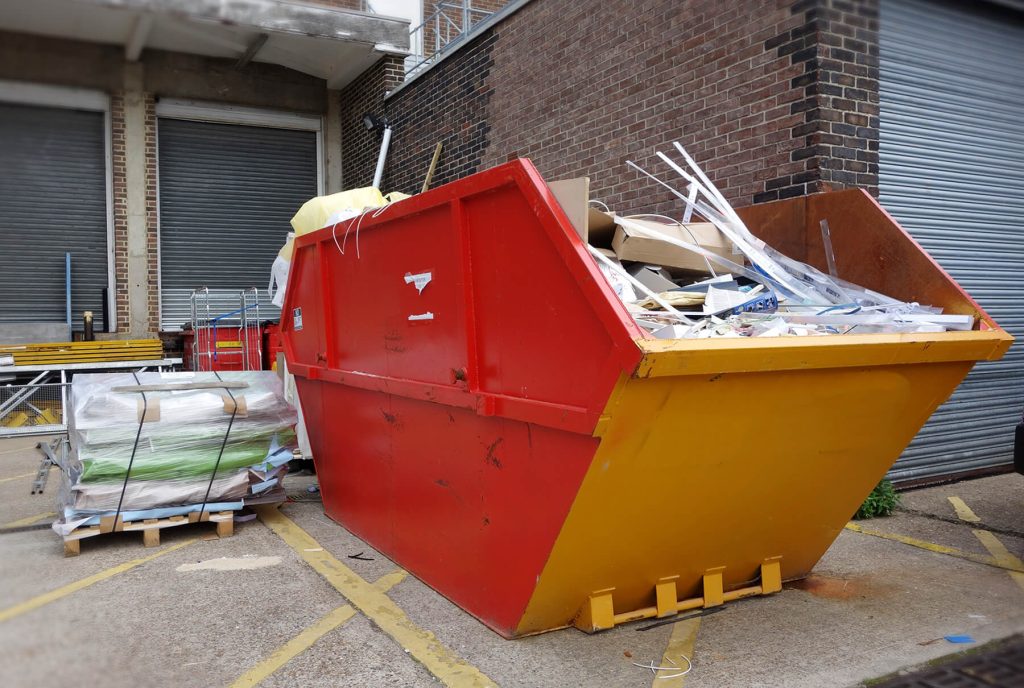Drowning in construction waste? Discover how proper disposal methods can save you money, protect the environment, and keep your project compliant with UK regulations.
Understanding Construction Waste Management
Construction waste management is a critical aspect of modern building projects in the UK, where the construction industry generates over 100 million tonnes of waste annually. Effective waste management isn’t merely about disposing of debris; it’s a comprehensive approach that encompasses sorting, recycling, and responsible disposal practices. The construction sector accounts for approximately 35% of the UK’s total waste output, making it essential to implement robust management strategies. Today’s construction professionals must balance regulatory compliance, environmental responsibility, and cost-effectiveness while managing site waste. Understanding the proper handling of various materials – from concrete and timber to metals and plastics – is crucial for project success and environmental stewardship.
The Environmental Impact of Construction Waste
The environmental consequences of construction waste are far-reaching and significant. In the UK, construction activities contribute to approximately 40% of the country’s total carbon footprint, with improper waste disposal playing a substantial role. When construction waste ends up in landfills, it not only occupies valuable space but also contributes to greenhouse gas emissions through decomposition. The production of construction materials and their subsequent disposal creates a significant environmental burden, with each tonne of landfilled waste generating approximately 0.5 tonnes of CO2 equivalent. Moreover, illegal dumping and poor waste management practices can lead to soil contamination, water pollution, and habitat destruction.
Legal Requirements and Compliance
- Duty of Care Regulations 1991 requires all construction businesses to ensure waste is handled and disposed of legally and safely
- Site Waste Management Plans (SWMPs) are recommended for projects over £300,000
- Waste carriers must be licensed by the Environment Agency
- Mandatory Waste Transfer Notes (WTN) for all waste movements
- Hazardous waste requires special registration and documentation
- Construction sites must comply with the Waste Framework Directive (WFD)
Waste Sorting and Segregation Best Practices
Effective waste sorting begins with a well-planned site layout and clear segregation protocols. Construction sites should establish dedicated waste zones with clearly marked skips or containers for different materials. Research shows that proper on-site segregation can reduce waste disposal costs by up to 25%. Key materials requiring separate containers include wood, metal, plasterboard, packaging, and inert waste. Training staff in correct segregation practices is essential, with regular toolbox talks and clear signage helping to maintain high standards. Implementation of a materials tracking system can help monitor waste generation and identify areas for improvement.
Recycling and Reuse Opportunities
- Concrete and masonry can be crushed and used as aggregate
- Metal waste typically achieves 95% recycling rates
- Timber can be processed into chipboard or biomass fuel
- Plasterboard is recyclable through specialist facilities
- Packaging materials can often be returned to suppliers
- Soil and stones can be reused in landscaping
- Windows and doors may be suitable for architectural salvage
Hazardous Waste Management
Hazardous waste requires specialised handling and disposal procedures to protect both workers and the environment. Common hazardous materials in construction include asbestos, lead-based paints, solvents, and contaminated soil. Sites must conduct thorough surveys before work begins to identify potential hazards. All hazardous waste must be stored separately in secure, weatherproof containers and collected by licensed specialists. Documentation must be maintained for a minimum of three years, and staff need specific training in handling hazardous materials. The costs of improper hazardous waste disposal can be severe, with fines reaching up to £50,000 per incident.
Sustainable Disposal Strategies
Implementing sustainable disposal strategies requires following the waste hierarchy: Reduce, Reuse, Recycle, Recover, and Dispose. Modern construction projects should aim for zero waste to landfill, with many UK companies already achieving 90% diversion rates. This involves careful material selection during the design phase, precise ordering to minimize excess, and partnerships with specialist recycling facilities. Innovative technologies like mobile crushing units and on-site segregation systems can significantly reduce transportation needs and associated carbon emissions. The adoption of circular economy principles, where waste materials become resources for new projects, is increasingly important for sustainable construction.
Choosing the Right Waste Management Partner
- Verify Environment Agency licenses and insurance coverage
- Check recycling rates and landfill diversion capabilities
- Assess tracking and reporting systems
- Compare collection frequencies and container options
- Review pricing structures and additional services
- Evaluate local facility locations and transport efficiency
- Consider their expertise in handling specific waste types
Implementing an Effective Site Waste Management Plan
A comprehensive Site Waste Management Plan (SWMP) is crucial for successful waste management. The plan should establish clear targets, typically aiming for at least 80% waste diversion from landfill. Key elements include waste forecasting, segregation protocols, and performance monitoring. Regular audits help identify areas for improvement, while staff training ensures consistent implementation. Digital tools can streamline documentation and reporting, providing real-time waste data. The plan should be reviewed monthly and updated as needed to reflect changing site conditions and emerging opportunities for waste reduction.
Conclusion: Future-Proofing Your Construction Waste Management
Effective construction waste management is no longer optional in today’s environmentally conscious industry. By implementing proper waste segregation, maximizing recycling opportunities, and working with reliable waste management partners, construction projects can achieve significant cost savings while meeting environmental obligations. The future of construction waste management lies in digital innovation, circular economy principles, and increasingly stringent environmental standards. Taking action now to improve waste management practices will position your project for success in an industry where sustainability is becoming as important as profitability.
Sources
[1] https://www.wbdg.org/resources/construction-waste-management
[2] https://dnr.wisconsin.gov/topic/Demo/Debris.html
[3] https://www.okonrecycling.com/construction-and-demolition-waste/mixed-construction-waste/recycling-mixed-construction-debris/


Leave a Reply